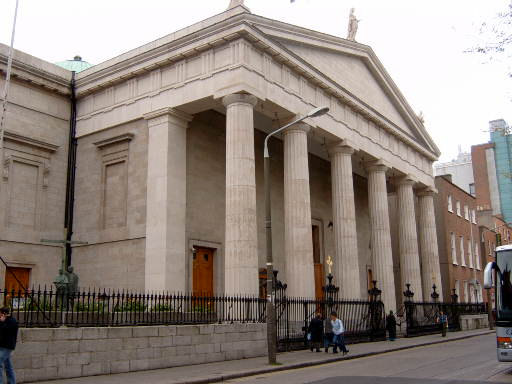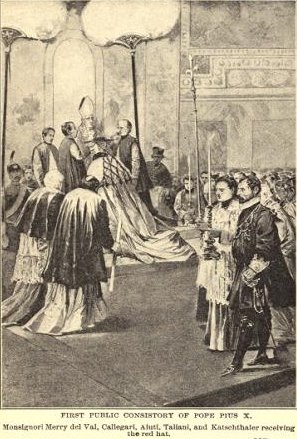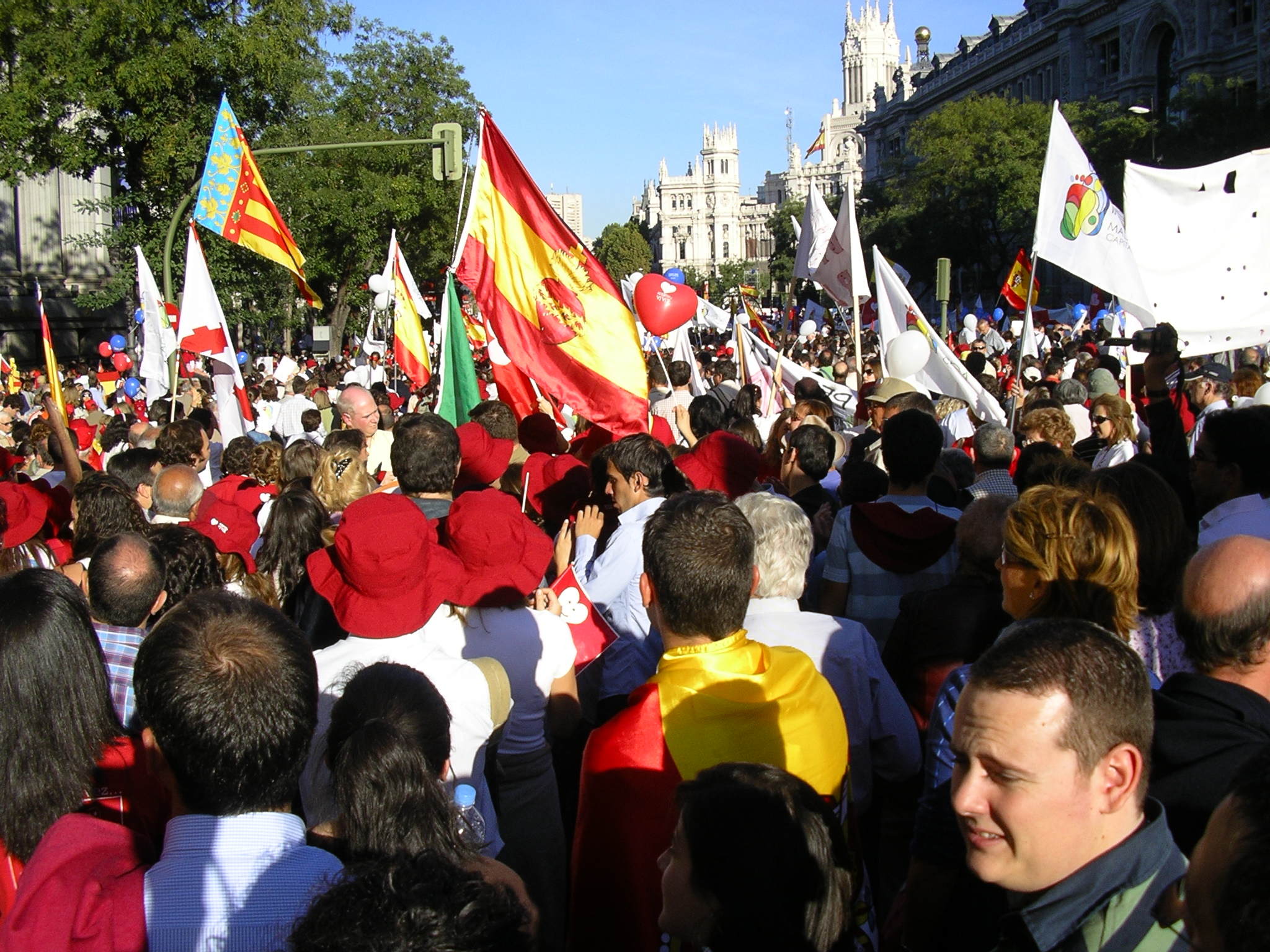|
Kevin McNamara (archbishop)
Kevin McNamara (10 June 1926 – 8 April 1987) was a senior Catholic academic and bishop who in the early 1980s was seen as one of the most outspoken members of the Irish hierarchy on issues such as abortion and divorce. He served for three years as Archbishop of Dublin before dying of cancer. Career Kevin McNamara was ordained a priest in St Patrick's College Maynooth in June 1949. His natural academic talent was recognised and he was soon appointed to teach moral theology rising to become Professor of Dogmatic Theology. In 1976 he was appointed by Pope Paul VI to succeed Bishop Eamon Casey in the diocese of Kerry and was ordained bishop in November 1976 from Cardinal William Conway. In office, McNamara and the neighbouring Bishop of Limerick, Jeremiah Newman, became the most outspoken conservative voices in the Irish hierarchy. They were seemingly out of step with the more diplomatic Archbishop of Armagh and Primate of All Ireland, Tomás Ó Fiaich and with the Archbish ... [...More Info...] [...Related Items...] OR: [Wikipedia] [Google] [Baidu] |
The Most Reverend
The Most Reverend is a style applied to certain religious figures, primarily within the historic denominations of Christianity, but occasionally in some more modern traditions also. It is a variant of the more common style "The Reverend". Anglican In the Anglican Communion, the style is applied to archbishops (including those who, for historical reasons, bear an alternative title, such as presiding bishop), rather than the style "The Right Reverend" which is used by other bishops. "The Most Reverend" is used by both primates (the senior archbishop of each independent national or regional church) and metropolitan archbishops (as metropolitan of an ecclesiastical province within a national or regional church). Retired archbishops usually revert to being styled "The Right Reverend", although they may be appointed "archbishop emeritus" by their province on retirement, in which case they retain the title "archbishop" and the style "The Most Reverend", as a courtesy. Archbishop Des ... [...More Info...] [...Related Items...] OR: [Wikipedia] [Google] [Baidu] |
Jeremiah Newman
Jeremiah Newman (1926–1995) was Bishop of Limerick 1974–1995 having served as Professor and President of St Patrick's College, Maynooth. Early life and education He was born in Dromcollogher on 31 March 1926 and after a local primary education attended St. Munchin's College, Limerick. He studied for the priesthood at St. Patrick's College, Maynooth and was ordained there on 18 June 1950. He began postgraduate studies in Philosophy at the Catholic University of Louvain and was awarded a Doctorate in Philosophy there in 1951. After that he took up studies in Sociology at the University of Oxford for four years before taking up a teaching post at Queen's University, Belfast. Lecturer in Maynooth College In 1953 Newman was appointed Professor of Sociology at St. Patrick's College, Maynooth, succeeding Peter McKevitt. It was an institution he would remain within, and eventually lead with distinction, until he was appointed Bishop of Limerick in May 1974. He published two books ... [...More Info...] [...Related Items...] OR: [Wikipedia] [Google] [Baidu] |
Garret FitzGerald
Garret Desmond FitzGerald (9 February 192619 May 2011) was an Irish Fine Gael politician, economist and barrister who served twice as Taoiseach, serving from 1981 to 1982 and 1982 to 1987. He served as Leader of Fine Gael from 1977 to 1987, and was twice Leader of the Opposition between 1977 and 1982; he was previously Minister for Foreign Affairs from 1973 to 1977. FitzGerald served as a Teachta Dála (TD) from 1969 to 1992 and was a Senator for the Industrial and Commercial Panel from 1965 to 1969. He was the son of Desmond FitzGerald, the first foreign minister of the Irish Free State. At the time of his death, FitzGerald was president of the Institute of International and European Affairs and a columnist for ''The Irish Times'', and had made occasional appearances on television programmes. Early life Garret FitzGerald was born in Ballsbridge, Dublin, in 1926, son of Desmond FitzGerald and Mabel McConnell Fitzgerald. His mother was involved in politics, and it was throug ... [...More Info...] [...Related Items...] OR: [Wikipedia] [Google] [Baidu] |
Labour Party (Ireland)
The Labour Party ( ga, Páirtí an Lucht Oibre, literally "Party of the Working People") is a centre-left and social-democratic political party in the Republic of Ireland. Founded on 28 May 1912 in Clonmel, County Tipperary, by James Connolly, James Larkin, and William O'Brien (trade unionist), William O'Brien as the political wing of the Irish Trades Union Congress, it describes itself as a "democratic socialist party" in its constitution. Labour continues to be the political arm of the Irish trade union and labour movement and seeks to represent workers' interests in the Dáil and on a local level. Unlike many other Irish political parties, Labour did not arise as a faction of History of Sinn Féin, the original Sinn Féin party, although it incorporated Democratic Left (Ireland), Democratic Left in 1999, a party that traced its origins back to Sinn Féin. The party has served as a partner in coalition governments on eight occasions since its formation: seven times in coaliti ... [...More Info...] [...Related Items...] OR: [Wikipedia] [Google] [Baidu] |
Fine Gael
Fine Gael (, ; English: "Family (or Tribe) of the Irish") is a liberal-conservative and Christian-democratic political party in Ireland. Fine Gael is currently the third-largest party in the Republic of Ireland in terms of members of Dáil Éireann and largest in terms of Irish members of the European Parliament. The party has a membership of 25,000 in 2021. Leo Varadkar succeeded Enda Kenny as party leader on 2 June 2017 and as Taoiseach on 14 June; Kenny had been leader since 2002, and Taoiseach since 2011. Fine Gael was founded on 8 September 1933 following the merger of its parent party Cumann na nGaedheal, the National Centre Party and the Army Comrades Association. Its origins lie in the struggle for Irish independence and the pro-Treaty side in the Irish Civil War, with the party claiming the legacy of Michael Collins. In its early years, the party was commonly known as ''Fine Gael – The United Ireland Party'', abbreviated ''UIP'', and its official title in ... [...More Info...] [...Related Items...] OR: [Wikipedia] [Google] [Baidu] |
Gaetano Alibrandi
Gaetano Alibrandi (14 January 1914 – 3 July 2003) of the Roman Catholic Church was a senior papal diplomat and former Personal Secretary to Giovanni Battista Cardinal Montini (later Pope Paul VI) Biography Born at Castiglione di Sicilia in the Province of Catania, Sicily, Alibrandi was ordained priest on 1 November 1936, and obtained a Doctorate on Divinity from the Pontifical Lateran University and a Doctorate on Civil and Canon Law. He entered the Diplomatic Corps of the Holy See on 1941 serving for five years in the Vatican Secretariat of State and later, as Apostolic Internuncio to Indonesia (1958), In 1961 he received episcopal consecration as titular Archbishop of Binda by Fernando Cardinal Cento upon his appointment as Nuncio of Chile (1961), followed quickly by similar appointments in Lebanon (1963), and Ireland (1969) where he retired in 1989. As Apostolic Nuncio to Chile he led the Chilean delegation to the Second Vatican Council. Nuncio to Ireland He was appointe ... [...More Info...] [...Related Items...] OR: [Wikipedia] [Google] [Baidu] |
Papal Nuncio
An apostolic nuncio ( la, nuntius apostolicus; also known as a papal nuncio or simply as a nuncio) is an ecclesiastical diplomat, serving as an envoy or a permanent diplomatic representative of the Holy See to a state or to an international organization. A nuncio is appointed by and represents the Holy See, and is the head of the diplomatic mission, called an Apostolic Nunciature, which is the equivalent of an embassy. The Holy See is legally distinct from the Vatican City or the Catholic Church. In modern times, a nuncio is usually an archbishop. An apostolic nuncio is generally equivalent in rank to that of ambassador extraordinary and plenipotentiary, although in Catholic countries the nuncio often ranks above ambassadors in diplomatic protocol. A nuncio performs the same functions as an ambassador and has the same diplomatic privileges. Under the 1961 Vienna Convention on Diplomatic Relations, to which the Holy See is a party, a nuncio is an ambassador like those from any o ... [...More Info...] [...Related Items...] OR: [Wikipedia] [Google] [Baidu] |
Papal Consistory
In the Roman Catholic Church a consistory is a formal meeting of the College of Cardinals called by the pope. There are two kinds of consistories, extraordinary and ordinary. An "extraordinary" consistory is held to allow the pope to consult with the entire membership of the College of Cardinals. An "ordinary" consistory is ceremonial in nature and attended by cardinals resident in Rome. For example, the pope elevates new cardinals to the College at a consistory; Pope Francis has called consistories for ceremonies of canonization. A meeting of the College of Cardinals to elect a new pope is not a consistory, but a conclave. History The term ''consistory'' comes from the la, con-sistere; "stand together".''Papal Consistory'' by Kevin Knight (Catholic Encyclopedia, 2009) Early popes conferred with their Roman presbytery which included ... [...More Info...] [...Related Items...] OR: [Wikipedia] [Google] [Baidu] |
Irish Constitution
The Constitution of Ireland ( ga, Bunreacht na hÉireann, ) is the fundamental law of Ireland. It asserts the national sovereignty of the Irish people. The constitution, based on a system of representative democracy, is broadly within the tradition of liberal democracy. It guarantees certain fundamental rights, along with a popularly elected non-executive President of Ireland, president, a Bicameralism, bicameral parliament, a separation of powers and judicial review. It is the second constitution of the Irish state since independence, replacing the 1922 Constitution of the Irish Free State. It came into force on 29 December 1937 following a Irish constitutional plebiscite, 1937, statewide plebiscite held on 1 July 1937. The Constitution may be amended solely by a national referendum. It is the longest continually operating republican constitution within the European Union. Background The Constitution of Ireland replaced the Constitution of the Irish Free State The Constitut ... [...More Info...] [...Related Items...] OR: [Wikipedia] [Google] [Baidu] |
Anti-abortion
Anti-abortion movements, also self-styled as pro-life or abolitionist movements, are involved in the abortion debate advocating against the practice of abortion and its legality. Many anti-abortion movements began as countermovements in response to the legalization of elective abortions. Abortion is the ending of a pregnancy by removal or expulsion of an embryo or fetus. Europe In Europe, abortion law varies by country, and has been legalized through parliamentary acts in some countries, and constitutionally banned or heavily restricted in others. In Western Europe this has had the effect at once of both more closely regulating the use of abortion, and at the same time mediating and reducing the impact anti-abortion campaigns have had on the law. France The first specifically anti-abortion organization in France, Laissez-les-vivre-SOS futures mères, was created in 1971 during the debate that was to lead to the Veil Law in 1975. Its main spokesman was the geneticist Jér ... [...More Info...] [...Related Items...] OR: [Wikipedia] [Google] [Baidu] |
Dermot Ryan
Dermot J. Ryan (26 June 1924 – 21 February 1985) was the Roman Catholic Archbishop of Dublin, Ireland from 1972 until 1984. Early life and education Born Dermot Joseph Ryan in 1924, to Andrew Ryan a medical doctor and Therese nee McKenna, in Clondalkin, Dublin. In 1932 went to Belvedere College, Dublin. In 1942 he entered Holy Cross College, Clonliffe, and graduated with a first in Hebrew and Aramaic in UCD in 1945, he spent a year in Maynooth before attending the Irish College in Rome gaining his BD in 1948 at the St. John Lateran University, Rome, and returned Clonliffe to complete his formation, where he was ordained, a priest on 28 May 28, 1950. Ryan returned to Rome to study at the Pontifical Gregorian University, gaining a licentiate in sacred theology in 1952. In 1954 he was awarded an MA in Semitic Languages from the NUI and followed by a licentiate in sacred scripture at the Pontifical Biblical Institute. Professor and scholar Dermot Ryan, a native of Dublin was ... [...More Info...] [...Related Items...] OR: [Wikipedia] [Google] [Baidu] |


.jpg)



